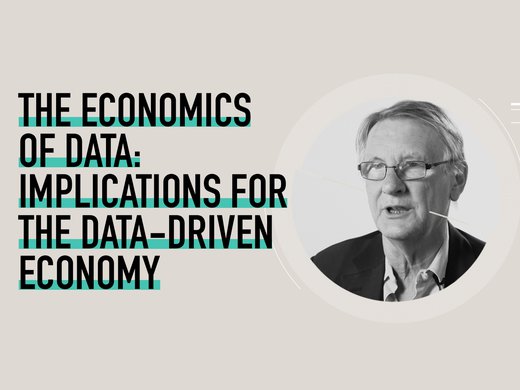Trying to calculate the value of personal data is tricky. Plenty of people agree that our personal data is incredibly valuable: it’s the resource base of our digital and algorithmic economies. However, few people agree on the best way to measure that value. But that is changing.
International policy makers such as the United Nations, the International Monetary Fund, the World Bank, the Organisation for Economic Co-operation and Development, and Eurostat have spent several years developing a “sum-of-costs” approach to use in national accounting standards, called the System of National Accounts.
These standards form the basis of GDP and other macroeconomic calculations and policy decisions. We’ll witness the rollout of this approach in the coming months and years. It’s premised on the idea that data’s value can be calculated from the costs that go into its production, such as wages, energy and other inputs, and an average profit markup.
All of this might seem like an esoteric issue relevant only for national statistical offices and economic experts, but it does have a significant bearing on the world — especially as we have become more dependent on data as the primary asset underpinning innovation, competition and productivity. Data doesn’t currently show up in national accounts, nor on corporate balance sheets; it is, to all intents and purposes, an unaccountable asset whose opacity obscures significant economic changes.
This issue is particularly pertinent in light of the tariffs imposed by the United States against countries such as Canada. These tariffs are premised on the White House’s mercantilist calculation that Canada is taking advantage of the United States via its trade surplus. Tariffs are meant to shift this surplus toward the United States. However, personal data is missing from these mercantilist logics, and that matters for how we understand contemporary trade dynamics.
Let me illustrate with the example of Alphabet/Google and the data assets it extracts from Canada.
As a corporation, Alphabet generates nearly 80 percent of its revenues from online advertising. The collection and the analysis of personal data are central to its business model, and include the collection of personal data from Canadians. Alphabet states unequivocally that they do not “sell” our personal data; instead, our data becomes an important asset feeding into their operations and product/service development. If you read their earnings calls and annual reports, you will soon notice that Alphabet does not worry about the value of data it collects and hoards; it does, however, worry a lot about something called “traffic acquisition costs,” or TAC.
“Traffic” is another word for you and me — and our personal data — as we use the 50+ products that Alphabet manages, from Gmail to Google Maps. TAC can be used as a proxy for calculating data’s value for Alphabet, as TAC represents the cost of generating revenues through personally targeted advertising. This is exactly what I did with some colleagues: we used TAC to calculate the value of our personal data to Alphabet in an article for IEEE Transactions on Technology and Society.
We did this analysis by looking at how much Alphabet pays corporations such as Apple to set Google Search as a default on iOS devices, which Alphabet treats as a TAC cost. Over time, these payments to Apple alone have risen from US$1 billion in 2014 to US$18 billion in 2021. If we divide this amount by the number of active iPhones, we can get close to the value of this data for Alphabet. In 2014, the resulting number was $2.26 per person, and in 2021, it was $14.62.
These numbers don’t seem particularly high, but they need to be adjusted by the average TAC rate that Alphabet pays, to calculate how valuable this data is for Alphabet. The TAC rate in 2021 was 22 percent, representing what Alphabet was willing to pay for the data — meaning that this data’s value for Alphabet was actually more like $66.46 in 2021 per person, and its total value was $81.26 per person (that is, $14.62 + $66.46). If we then extrapolate to the population of Canada (41.6 million), the total value of Canada’s data extracted by Alphabet was around $3.4 billion in 2021.
That means Alphabet alone is extracting US$3.4 billions’ worth of data from Canadians every year, a pretty hefty amount that is missing from trade statistics. Now, if data is an asset — a valuable resource that keeps generating future revenues and isn't used up immediately — then we actually have to adjust this amount further by adding a multiplier.
An investor looking to assess the value of a company often looks at revenues and applies a multiplier. While these multipliers vary, an eight-fold multiplier reflects trends in the software sector, though it can be much higher. In this case, that would mean a whopping US$27.2 billions’ worth of data assets is missing from these discussions about trade surpluses — and that’s only for one corporation, Alphabet.
So, if we added data assets into the trade debate, we would very quickly see that Canada does not have a surplus with America: in fact, it is the other way around. Corporations such as Alphabet, Meta, Amazon and so on have been extracting billions of dollars’ worth of data assets from Canada for years — and they will continue to do so until we get more transparency on data and its value.
Consequently, if the Canadian government wants to implement retaliatory measures fit for the twenty-first century, then they need to find ways to address this yawning gap in the trade dynamic with the United States represented by data assets.



